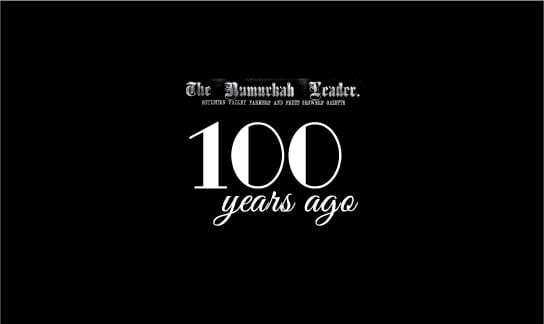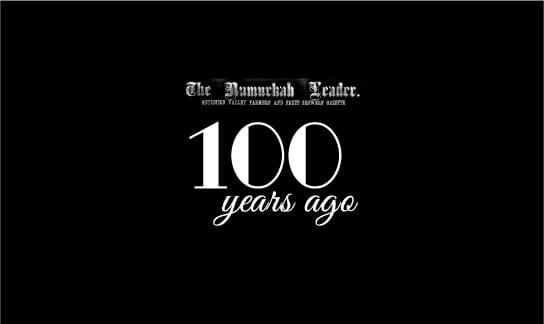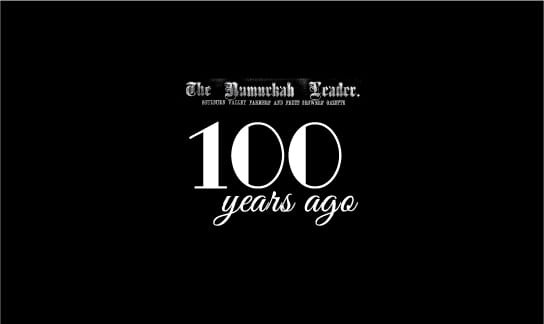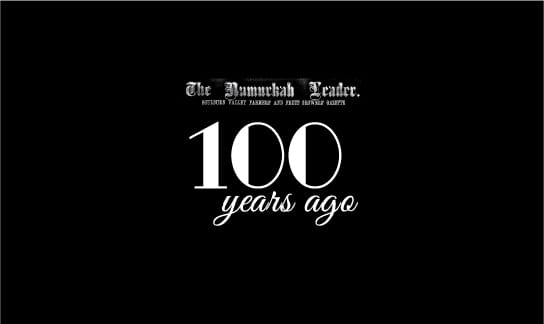This week in 1920: February 12
DISTRICT CATHOLICS’ FINE EFFORT FOR THE CONVENT AND SCHOOL ADDRESS BY DR. MANNIX. To raise £2500 in a time of partial drought is an effort worthy of admiration, and even those who are not of the Roman Catholic persuasion must grant that the...
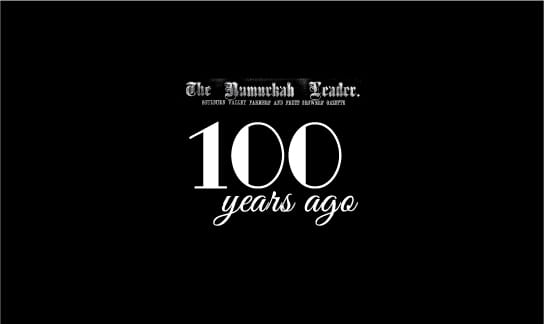
DISTRICT CATHOLICS’ FINE EFFORT
FOR THE CONVENT AND SCHOOL
ADDRESS BY DR. MANNIX.
To raise £2500 in a time of partial drought is an effort worthy of admiration, and even those who are not of the Roman Catholic persuasion must grant that the raising of such a sum is not possible unless the adherents of the church have the education of their children along Catholic lines deeply at heart. The effort had been in progress for some months, and this culminated in a sports gathering on Wednesday afternoon last, and the ceremony of crowning the young ladies who had taken part in the queen competition was performed the same evening by His Grace Most Rev. Dr. Mannix, Roman Catholic Arch-bishop of Melbourne.
The Archbishop was met at the railway station at mid-day on Wednesday by a very large gathering of people, many of whom had travelled long distances. A bodyguard of some 50 horsemen was lined up in the station yard, and after His Grace had been greeted by his people he and the priests accompanying him were escorted by the horsemen and a fleet of motor cars, headed by the Numurkah Town Band, to the show-grounds, Mr Frank McKenna acting as marshal.
Dr. Mannix was given another very warm reception on the grounds, and his appearance on the grandstand was the signal for an outburst of cheering that lasted for some minutes. Dr Mannix was welcomed from the grandstand by Very Rev. Arch-Priest McCarthy in suitable terms, and on rising to acknowledge the welcome the Archbishop was received with loud cheers. He thanked Arch-Priest McCarthy and Father Heffernan and all associated with them for the cordiality of the welcome.
He would not say anything further at that stage, beyond expressing the hope that some means would be found of securing for the St. Patrick’s procession in Melbourne in March next the fine body of horsemen that had attended him that day. (Cheers.)
I t was a long way from Melbourne to Numurkah, but long as it was he was very glad to have made the journey if only to have the opportunity of seeing the fine crowd that had assembled at the railway station to meet him, and the still larger crowd on the grounds. If he had had his choice he would have come when the weather was not so hot, for though it might be said he was always in hot water he had not yet become accustomed to the heat. (Loud laughter.)
Highly Improper.—It has been brought under our notice that a number of the Federal recruiting appeal forms, Return A, containing the excuses put forward by Shepparton men eligible for military service during the war are being used as waste paper for the wrapping up of parcels by some of the business people of the town. This is highly improper, for, whatever may be thought of the men who would not enlist, it was understood that their excuses should be regarded as confidential, and to make them public in this fashion is a downright breach of faith. We have no idea who is responsible, or whether this has occurred by accident or design, but it should be stopped immediately.
TOMMY’S LETTERS.
CHAPLAIN ON ENGLISHMEN’S
“WRETCHED EFFORTS”
Comparing the letters censored by him during the war, an army chaplain (Capt, the Rev. William Field, of Portsmouth) says he found that Scottish letters were matter-of-fact, Irish illiterate, Welsh flowery, and English simple. Dominion letters were more robust, Canadian brief and blunt, New Zealand affectionate and homely, and Australian well written, their literary style. clean-cut sentences, excellent command of language, good grammar and pronounced originality, generally speaking, being excellent.
He expresses the hope that few, if any, of the English Soldiers’ letters have fallen into enemy hands for “Germany would be filled with disgust at the educational system which produced such slender and even wretched results. It is a national reflection that we must remove without delay.” — “London Times”
To celebrate the State Library of Victoria’s digitising of the war years editions of the Numurkah Leader, each week we will include the news of the week, 100 years ago.
To view these editions online go to trove.nla.gov.au/ndp/del/title/591.



